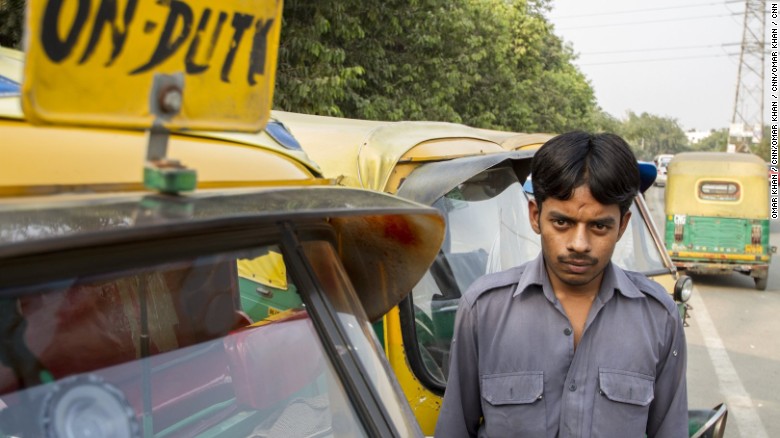Lower incomes slashed amid India's corruption crackdown
Imagine your salary suddenly being cut in half, with no prior warning. How would you cope?
And if it did happen, wouldn't you get angry and protest, or do something about it?
Sarvesh Kumar is a shy young man, just 22 years old. He's wearing a dirty grey shirt and trousers, a self-fashioned uniform of sorts. He seems almost shrunken. His shoulders are a bit hunched, his head sunken into his torso as he sits in his auto-rickshaw, a three-wheeler taxi that is common on the streets of New Delhi.
"So, your income just got halved?" I ask.
"Yup," he says. We are chatting in colloquial Hindi. "I used to make 1,000 rupees a day. Now I can barely make 500 rupees," he says.
"Ever since the government banned the old currency notes, I'm struggling to get rides."
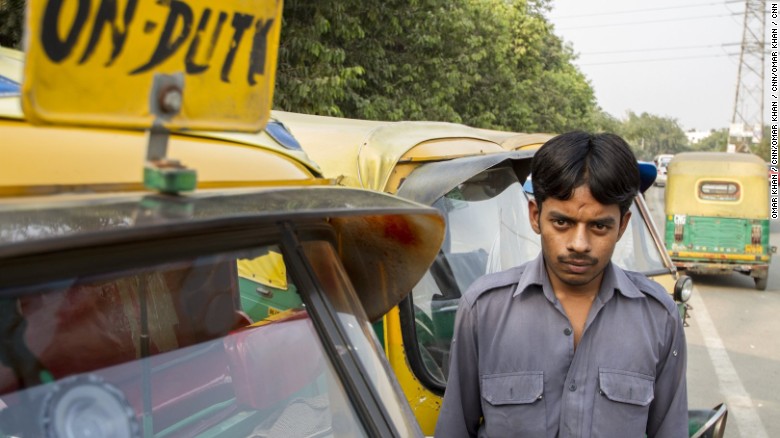
Sarvesh poses by his auto rickshaw.
Sarvesh is referring to a surprise announcement by India's Prime Minister Narendra Modi on primetime TV on Tuesday, November 8.
Modi told the nation he was discontinuing 500 and 1,000 rupee notes: the two largest denomination notes, and worth some 80% of the total cash in circulation.
'Black money' crackdown
One of the main reasons he cited was to crack down on rich Indians who had stockpiled cash -- 'black money', as it's called here -- and avoided paying taxes.
Now, overnight, those cash hordes could be rendered worthless.
Cash has been hard to come by in New Delhi in the last week. The government has issued new 500 and 2,000 rupee notes, but one needs to queue up at an ATM or bank to get them. People I've spoken to in these queues have waited for hours, sometimes in vain. Many ATMs are broken.
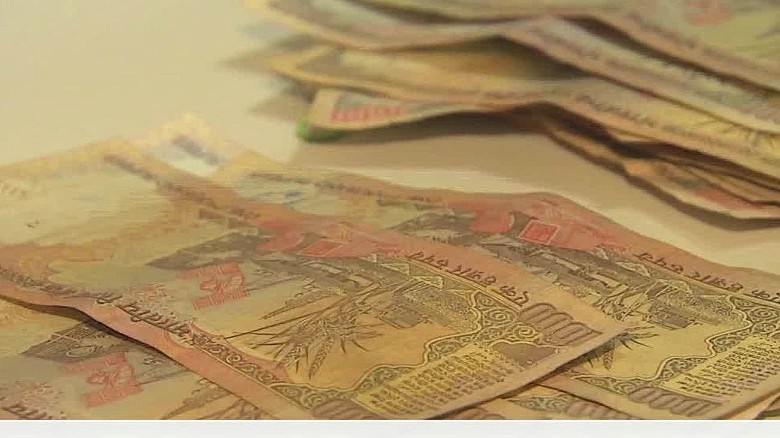
Millions of Indians queue for cash.
I don't use cash much; I prefer credit cards. But most Indians don't have credit cards: they buy and sell everything in cash.
For them, life this week has been a return to the era of the barter system.
Trickle down
'Trickle-down economics' is often cited as a positive macro policy that filters down to the poor. In this case, however, there is at least one clear negative trickle. People like Sarvesh are really struggling.
"See, I have no cash left!" he says, showing me his wallet. It has a few measly 10 rupee notes. "The rich don't have any cash, so no one can pay me."
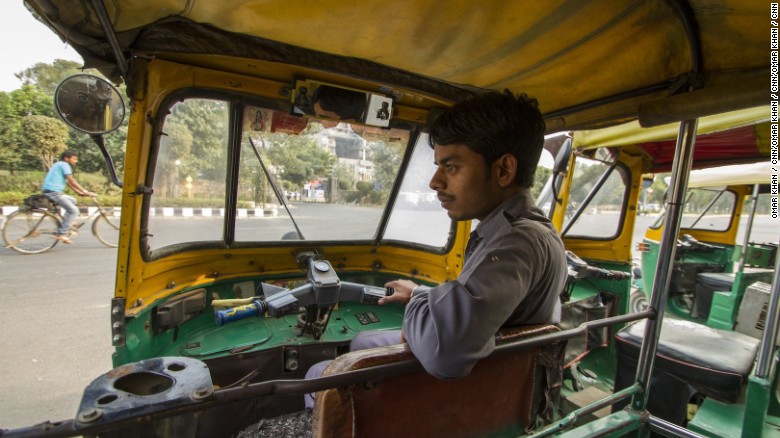
Sarvesh waits for a customer.
I ask him what he thinks about richer Indians who avoid paying income tax.
"Tax? What's income tax?" he says. "I don't even qualify to have 'black money'. I don't make enough to make ends meet!" he says.
In fact, only about 3% of Indians officially make the required 250,000 rupees a year -- about $3650 -- to qualify to pay income tax. Sarvesh is part of the 97%. What's more, he has no bank account and no credit cards.
"How can I buy food," he laments. "The whole country is looking at all these long queues at banks and ATMs," he says, referring to the images of middle class Indians lining up to exchange their old notes for new ones issued by the government.
"But my story is different. Because most people are short of cash, they can't pay me for a ride. So I suffer the most."
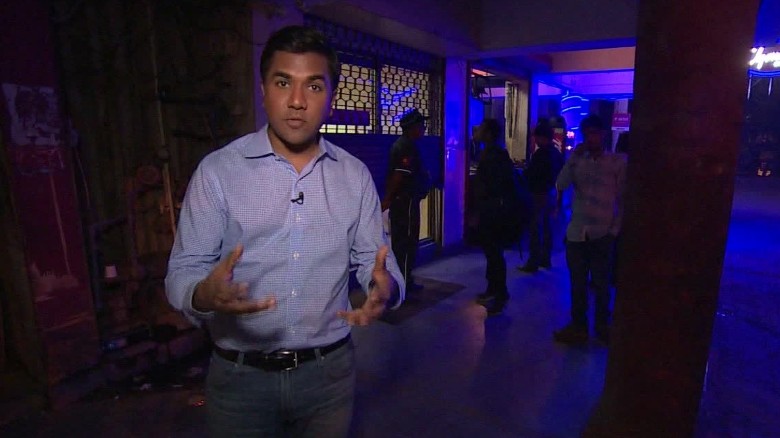
Indian banks struggle to swap out rupees
In an average month, Sarvesh tells me he pulls in about 15,000 rupees in cash -- about $220.
He spends two-thirds of that amount on leasing his auto-rickshaw. If he maintains those payments for three years, the rickshaw will be his.
Another 2,000 rupees (US$29) goes towards his tiny studio, which he shares with his father. Both he and his father have wives that live far away; in their case, their village in Farrukhabad in the state of Uttar Pradesh. They manage to send back about 1,000 rupees (US$15) a month.
If you're doing the math, that leaves Sarvesh with about 2,000 rupees a month to spend on his own food and drink. And gas. And clothes. And everything else. That's less than $30.
Now do the math again with only half his salary.
The 'fat cats'
Sarvesh and I are near a local tea-vendor, a chaiwallah. Other auto-rickshaw drivers crowd around us, excited at the prospect of a TV crew around them. They have the same stories. Halved incomes; squeezed pockets; hungry stomachs.
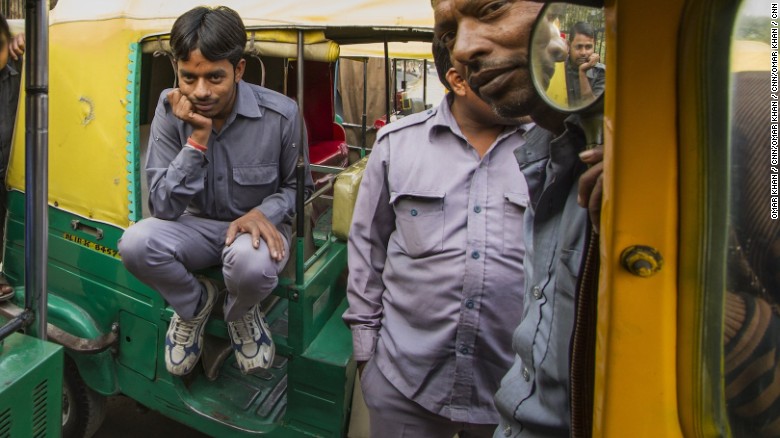
Sarvesh on his auto rickshaw with other drivers.
Pankaj Kumar is the loudest of the other drivers. He's not shy. How are you coping, I ask. Do you think the government's move to crack down on corruption is smart, given how badly it's hurting you all?
"Definitely!" he says. "Let those fat cats suffer now. They've been collecting big piles of money. They sleep on beds of money, do you know? So much money they don't know where to put it!" he announces to his growing audience of drivers and passersby. "And with their money, this government is going to build hospitals, schools, real infrastructure!"
Everyone is listening intently. One of his buddies breaks in: "Yeah, but if there are no people left, what will you do with hospitals?" Everyone laughs.
Dark humor is in abundance here.
'We know how to struggle'
Sarvesh and I wander away from the crowd a bit. I wonder, will he make rent this month?
"No way," he grins. "But my landlord has lots of money. I'll just ask him to wait for two months more."
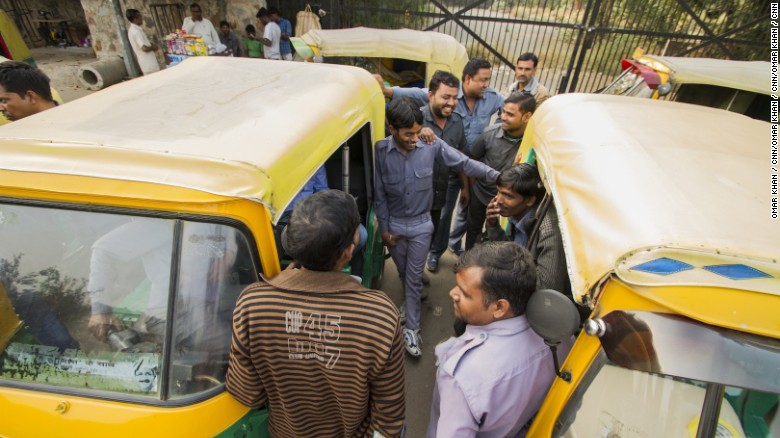
Sarvesh and the other drivers chat and laugh, despite the tough circumstances.
What about trying to open a bank account? And could he use ride-sharing apps like Uber -- or its Indian equivalent Ola -- to help him get rides on credit payments while the country's cash flow is slow?
"Nope. I don't know to use it," he says. "My friends say the location never shows up on the maps anyway."
It turns out he can only read and write a little, in Hindi. Sarvesh is a college graduate, but he says he learned very little there. "The teachers never showed up!" The only job that made sense to him was to drive, like his father.
I'm curious how long he can hold out. Does it really mean so much to him, to hurt the rich, that he can sustain going hungry and making half-pay for a month or two?
"Oh, yes," he says. "We know how to struggle. They don't."
I don't doubt Sarvesh's resolve. But I do wonder how long his youthful idealism will last, amid the greatest financial experiment in Indian history.
News Courtesy: www.cnn.com

